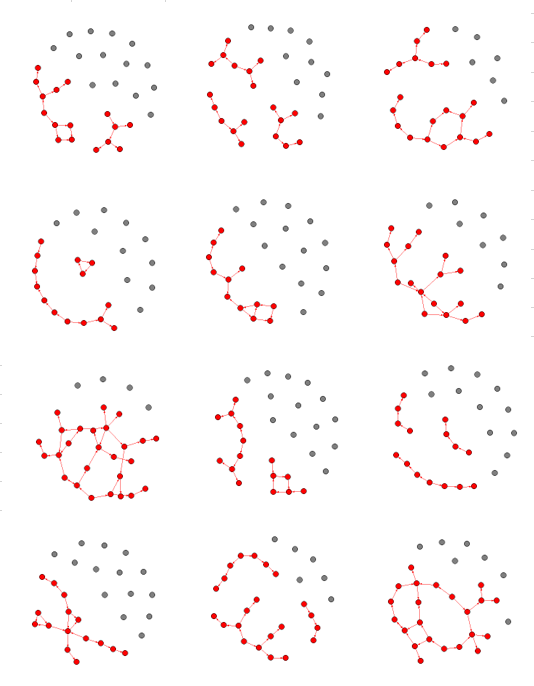探索社會網絡的傳播效益與功能在傳染病防疫與慢性病防治之差異模式
An experimental desgin for exploring the function and benefit of social network on the spread of health behavior: the differential model between infectious and chronic disease

This project proposes a novel argument that social network intervention is likely to be an effective mean in the promotion and adoption of public health knowledge and behaviors. Two kinds of public health knowledge were chosen for our research. Firstly, we picked “dengue fever” as the disease target for our research and design a field experiment to investigate the effects of social network intervention on the transmission of infection prevention information within a well-defined class network. Secondly, we picked “sleep disorder” as an example of chronical diseases that has a high incidence rate among adolescents. Conducting our experiments from 16 classes at four schools located in Tainan City in Taiwan, we compared the health knowledge, attitude and behaviors before and after our social network intervention. Three types of social network intervention were employed in our experimental studies, including the random network model, the random friend network model and the high in-degree network model. Results show that social network intervention can effectively improve participants’ knowledge about dengue fever and sleep disorder, but not so much for the attitude and behavior. Our teenage respondents tend to nominate their close friends to deliver the information. In our experiments, we also fing that seeds with the highly connected network are most likely to reach out to a broader audience and those seeds are considered as the most effective transmitters. In summary, this study provides some evidence that the social network intervention is associated with the increase of public health knowledge, suggesting that government should explore the potential use of citizens’ interpersonal relationships for public health issues. We anticipate to provide an alternative model for the control of disease or epidemics to compensate for regions with less health and medical resources

相較於傳統的公衛或政策宣導理論,本計畫希望探究社會網絡介入方法是否能有效進行不同公衛知識(如防疫知識與睡眠知識)的傳遞,進而達到更佳的風險控管。本計劃挑選台南市區四所學校16 個班級之青少年作為實驗的施測對象,在傳染病的選擇上,以南部盛行率較高的「登革熱」作為研究指標,進行登革熱防疫知識傳散實驗。慢性病的選擇則以「睡眠知識」為主,良好足夠的睡眠狀況能正向影響青少年整體行為、包括專注力、學習能力、記憶力以及情緒展現等,反之,若睡眠失調或有睡眠問題,青少年的各項發展將有一定程度的負面影響,甚至產生肥胖、憂鬱等身心健康狀況,因此睡眠成為本研究衡量青少年慢性病的指標。實驗設計比較不同社會網絡介入的傳散效果,依照挑選種子方式的不同,分為: 隨機型網絡、隨機型好友網絡以及高度連結網絡三種介入方法,並比較其防疫宣導之效能差異,分析介入前後學生們在不同公衛知識、態度和行為的差異。實驗結果發現介入實驗能有效的提升參與者們的知識,但在於態度以及行為未能有成效,而學生們在選擇傳散的對象則以好友作為優先考量,高度連接網絡之種子在固定範圍及時間內傳散範圍最廣。本研究提供健康知識傳遞實務應用上可以採用的新方法,探索不同社會網絡的人際互動模式來彌補健康與醫療資源不足地區的防疫問題與管理。